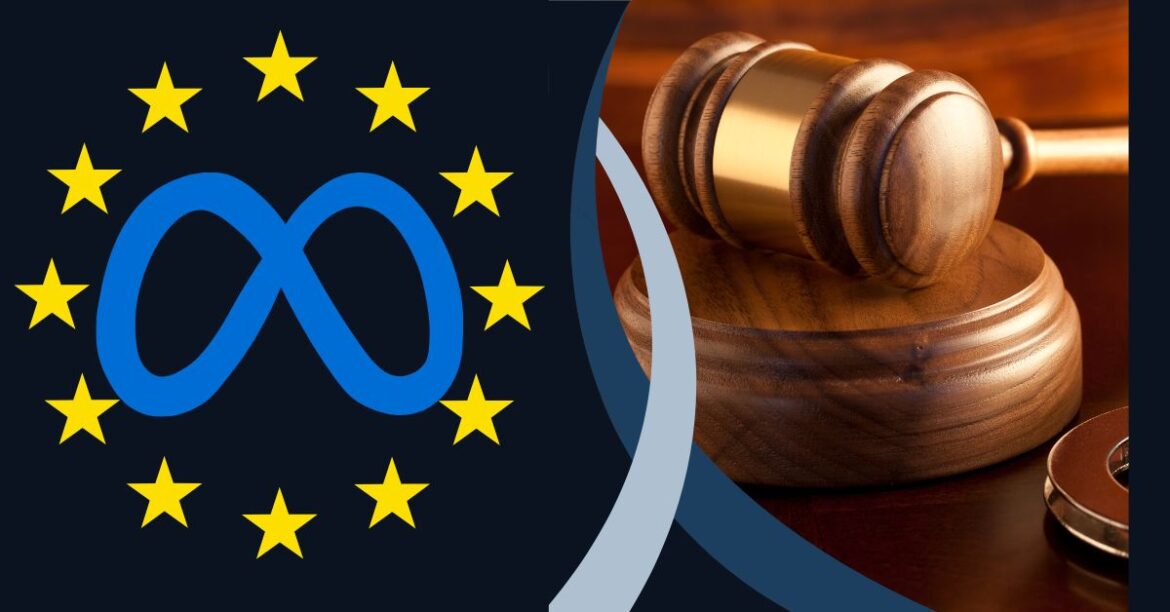Table of Contents
EU Court Rules Against Meta in German Data Case: The top EU court has ruled against Meta, the parent company of Facebook, Instagram, and WhatsApp, in a German data case.
This ruling could require the platforms to make significant changes to how they collect user data within Europe.
Key Takeaways EU Court Rules Against Meta in German Data Case:
- The EU court ruling may compel Meta to revamp its data collection practices for Facebook, Instagram, and WhatsApp in Europe.
- The court upheld Germany’s anti-cartel watchdog’s argument that data privacy concerns can be considered in antitrust cases.
- The ruling challenges Meta’s ability to link user data across platforms, potentially impacting its targeted advertising model.
Meta, the parent company of Facebook, Instagram, and WhatsApp, may have to undertake substantial changes in how it collects user data in Europe following a ruling by the European Court of Justice (ECJ).
The court’s decision favored Germany’s anti-cartel watchdog, supporting its contention that data privacy considerations can be taken into account in antitrust investigations.
Impact on Data Collection and Targeted Advertising
At the heart of the case was Meta’s capacity to connect data across its platforms, enabling precise targeting of advertisements to users, which forms a significant part of its revenue model.
The German watchdog, considering it an abuse of Meta’s dominant market position in Germany, prohibited the mingling of personal data collected on Facebook with information obtained from Instagram or WhatsApp.
EU Court Supports Cartel Offices’ Authority
The European Court affirmed the rights of cartel offices to conduct investigations under the EU’s General Data Protection Regulation (GDPR). This ruling is expected to have far-reaching implications for business models in the data economy.
Andreas Mundt, the head of the anti-cartel watchdog, acknowledged the significance of the judgment on Twitter.
Meta’s Compliance and Data Gathering
In line with previous rulings against Meta and other tech giants, the court emphasized that the company must obtain explicit consent before collecting significant amounts of personal data, rejecting any potential workarounds proposed by Meta.
Consequently, Meta will likely need to explore alternative methods for data collection in Europe.
Meta’s Response and GDPR Enforcement
A spokesperson for Meta stated that the company is assessing the court’s decision and will provide further comments in due course. Privacy campaign group Noyb welcomed the ruling, emphasizing that it reinforces the fact that Meta cannot evade compliance with the GDPR.
The group’s Max Schrems highlighted the requirement for Meta to obtain proper consent and refrain from exploiting its dominant position to coerce users into accepting unwanted terms.
Implications for Other Tech Platforms
The ruling has the potential to impact other major platforms, such as Google, which operate under similar ad-tech business models.
The outcome of this case raises concerns for platforms relying on extensive data collection and targeted advertising practices, potentially subjecting them to scrutiny regarding their compliance with data protection regulations.
Conclusion to EU Court Rules Against Meta in German Data Case
The EU court’s ruling against Meta sets a precedent for considering data privacy concerns in antitrust cases and emphasizes the need for explicit user consent.
This decision signals a significant challenge to Meta’s data collection practices and targeted advertising model, with potential implications for other tech platforms operating within Europe. It reinforces the importance of upholding data protection regulations in the digital landscape.





